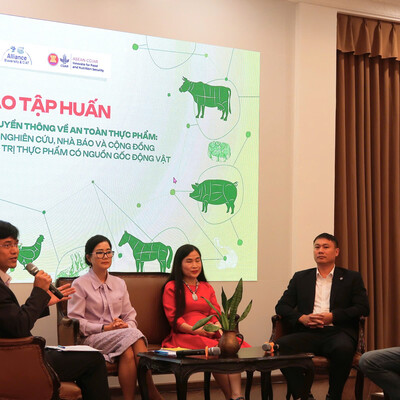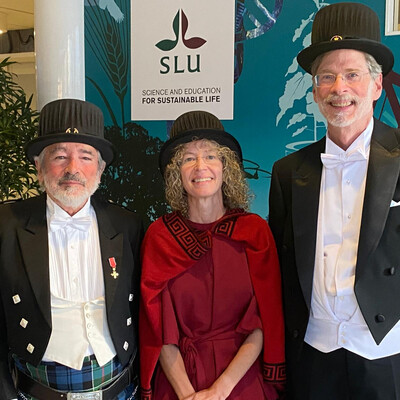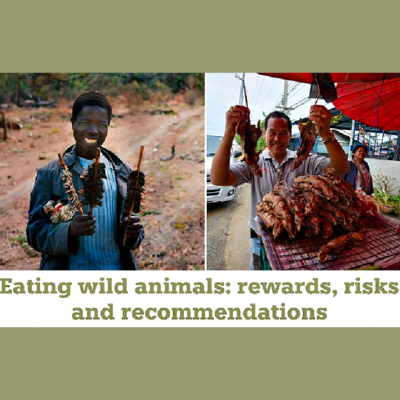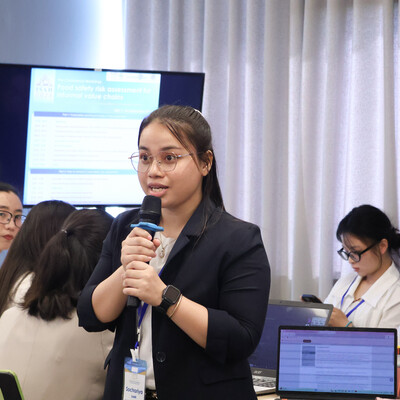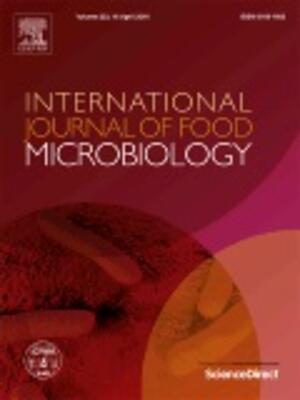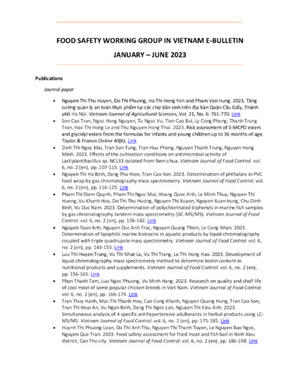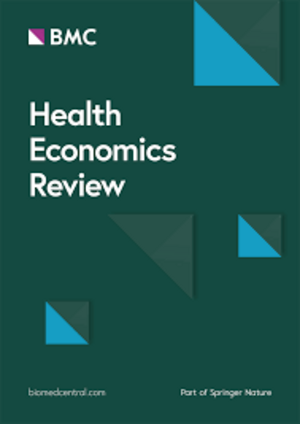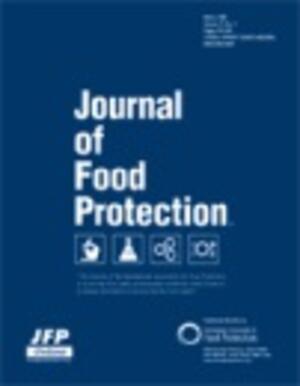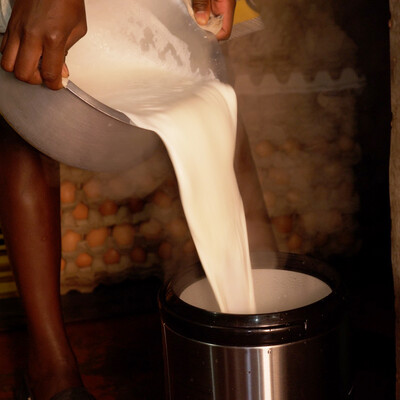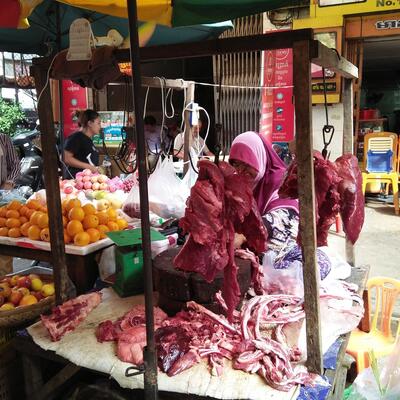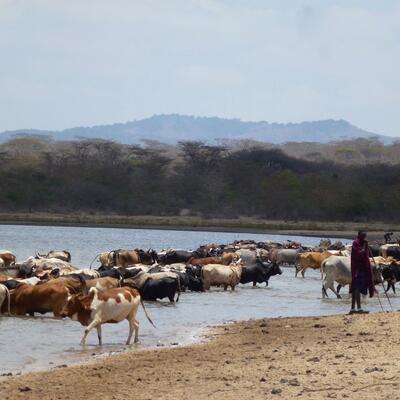
Combating foodborne diseases in Burkina Faso through a ‘Pull-Push’ approach
Each year, 600 million people across the world fall ill from contaminated food and 420,000 die, many of them young children. The burden of foodborne diseases is particularly high in Africa, where the resulting illnesses and deaths are comparable to those caused by major infectious diseases such as malaria, tuberculosis and HIV/AIDS.
In Burkina Faso, the poultry sector is central to socio-economic development, accounting for USD 140 million each year. However, there is a limited perception of food safety risks within the country, and an ILRI value chain assessment reveals that Burkina Faso’s poultry and vegetable consumers are at high risk of foodborne diseases, largely due to unsafe transportation, slaughter and cooking techniques. These foodborne diseases not only cause devastating health impacts but also contribute to productivity losses, medical expenses and other economic costs.
The ILRI led Pull-Push project is being implemented in Burkina Faso and Ethiopia to improve food safety in informal markets. In the past, efforts at improving food safety in Burkina Faso focused on training producers with little attention paid to incentives for behaviour change, especially among consumers. At the core of the Pull-Push project, however, is the idea that ‘pull’ (demand for safe food) and ‘push’ (supply of safe food) approaches need to be co-implemented—with a focus on influencing behaviour—to generate sustainable improvements in food safety.
This begins with training food safety regulators on best practices, hygiene and handling of foods. The latest training, held in Ouagadougou from 14th to 18th February 2022, focused on providing food regulators with a broad understanding of food safety risks in the country as well as how they can better assess and manage them. It is anticipated that the project training exercises will increase the knowledge and awareness of regulators to better maintain proper food safety practices in the country.
In addition to regulators, project training exercises are also focused on empowering food vendors to implement best practices through targeted messages, user-friendly tools, peer-to-peer monitoring and improved organization. This will improve vendors’ knowledge, attitude, cooking techniques, and hygienic practices, ultimately leading to less contaminated food. Vendors will also be awarded certificates indicating their professionalism which will incentivize them to change their behaviour and improve their food safety practices.
Ultimately, the combined training of food safety regulators, vendors and other value chain actors is a prerequisite to establishing effective and safe food systems in Burkina Faso. But it is also not sufficient on its own.
In addition, a launch event for a communication campaign led by the International Livestock Research Institute (ILRI)—and attended by a variety of partners including the Ministry of Health and Public Hygiene and the Ministry of Agriculture and Livestock—was held on 24 March 2022 to present the communication materials to be used during the project to stakeholders.
Chicken, which accounts for 6% of the total agricultural gross domestic product (GDP) in Burkina Faso, was the chosen focus of the campaign due to the risk of foodborne illness transmission to consumers in the poultry sector. Unsafe practices like those outlined in the value chain assessment above were identified as some of the major issue areas.
The campaign, which is scheduled to run for 9 months starting from June 2022, is being implemented by Mediacom, the most well-known communication agency in Burkina Faso. To relay the information to consumers, they used several approaches including visuals, posters, spot videos and capsules. Messages about best food safety practices will also be channelled through television, Facebook, Twitter and a dedicated website.

A poster from the communication campaign (‘Choosing the right food outlet to eat better’)
The Pull-Push project is linked to four other food safety projects in the country, with contributions from The Ohio State University, Addis Ababa University, Technical University of Denmark, International Food Policy Research Institute (IFPRI), and funding from the Bill and Melinda Gates Foundation as well as the UK Foreign, Commonwealth and Development Office.
Another related project is the Poultry Losses and One Health (POLOH) project which seeks to reduce economic losses and zoonotic disease transmission in the country through One Health interventions at the farm level, with special consideration for poultry diseases. By training poultry producers and sellers on better farming and market practices, the project aims to improve safety, productivity and livelihoods within the sector through a gender-sensitive lens. By improving the care and health of chickens, animal welfare will also improve.
Killing nearly half a million people across the globe every year, foodborne diseases require urgent and strategically implemented solutions. The Pull-Push project in Burkina Faso aims to provide just that, and by engaging stakeholders and building capacity in the process, the project’s integrated approach can lead to an improved value chain environment, reduced foodborne illnesses, and the professionalization of the informal sector, including better governance.






